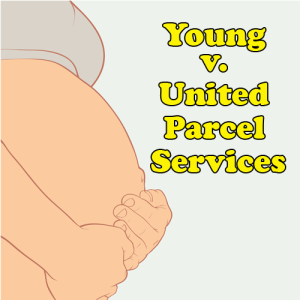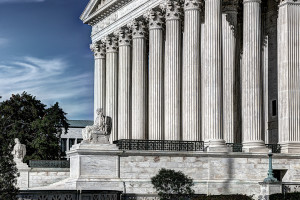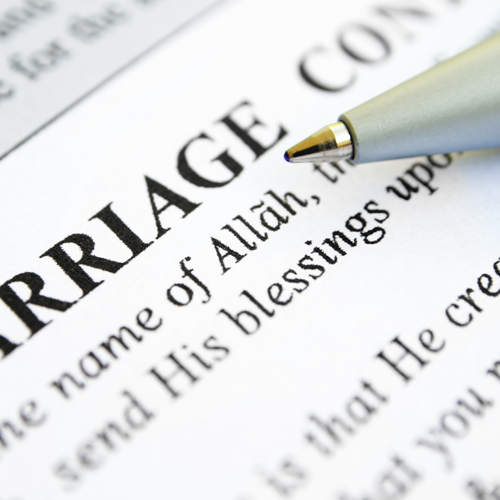Menu
Hot-Topics
February 19, 2026 | SCOTUS Reaffirms Fourth Amendment Standard for Police Responding to Household Emergencies
Category: Supreme Court Opinions-Full Text

SCOTUS Kicks Off October 2019 Term with LGBTQ Cases
The U.S. Supreme Court is back in action, kicking off its October 2019 term with oral arguments in five cases this week. The Court wasted no time in tackling the tough issues. Two of the cases before the Court involve whether federal anti-discrimina...

Woods v. Donald: The Standard for Habeas Relief
In Woods v. Donald, 135 S.Ct. 1372 (2015), the U.S. Supreme Court clarified when a federal court may grant habeas relief. In a per curium opinion, the justices unanimously held that court may only grant such relief when the state court’s decision i...

Young v. United Parcel Service: Establishing Pregnancy Discrimination
Establishing Pregnancy Discrimination In Young v. United Parcel Service, Inc. 575 U.S. __ (2015); 135 S.Ct. 1338 (2015), the U.S. Supreme Court addressed what types of accommodations employers must make for pregnant workers. The employee-friendly de...

Securities Act of 1933: In Omnicare v. Laborers Dist. Council
In Omnicare v. Laborers Dist. Council, 135 S. Ct. 1318 (2015), the U.S. Supreme Court interpreted section 11 of the Securities Act of 1933, which addresses the liability for statements of opinion that had divided the Federal Courts of appeal....

NFIB v. Sebelius: ACA Survives First Constitutional Challenge
In NFIB v. Sebelius, 567 US __ (2012), the U.S. Supreme Court considered its first constitutional challenge to the Affordable Care Act. By a vote of 5-4, the Court held that the statute’s “individual mandate” provision was a valid exercise of C...

How Will Same-Sex Marriage Bans Shape John Robert’s Court
Opinion on Same-Sex Marriage Bans Will Define Robert Court The U.S. Supreme Court has agreed to consider four cases involving state law bans on same-sex marriage. After previously sidestepping the historic constitutional and social issue, the justic...
Previous Articles
SCOTUS Decision in Bowe v. United States Is First of the 2026 Term
by DONALD SCARINCI on February 5, 2026
In Bowe v. United States, 607 U.S. ___ (2026), the U.S. Supreme Court held that Title 28 U.S.C. § ...
SCOTUS Rules State Can’t Immunize Parties from Federal Civil Liability
by DONALD SCARINCI on January 29, 2026
In John Doe v. Dynamic Physical Therapy, LLC, 607 U.S. ____ (2025) the U.S. Supreme Court held that...
Supreme Court to Address Racial Discrimination in Jury Selection
by DONALD SCARINCI onWhile the U.S. Supreme Court has concluded oral arguments for the year, it continues to add cases t...
The Amendments
-
Amendment1
- Establishment ClauseFree Exercise Clause
- Freedom of Speech
- Freedoms of Press
- Freedom of Assembly, and Petitition
-
Amendment2
- The Right to Bear Arms
-
Amendment4
- Unreasonable Searches and Seizures
-
Amendment5
- Due Process
- Eminent Domain
- Rights of Criminal Defendants
Preamble to the Bill of Rights
Congress of the United States begun and held at the City of New-York, on Wednesday the fourth of March, one thousand seven hundred and eighty nine.
THE Conventions of a number of the States, having at the time of their adopting the Constitution, expressed a desire, in order to prevent misconstruction or abuse of its powers, that further declaratory and restrictive clauses should be added: And as extending the ground of public confidence in the Government, will best ensure the beneficent ends of its institution.
Awards





